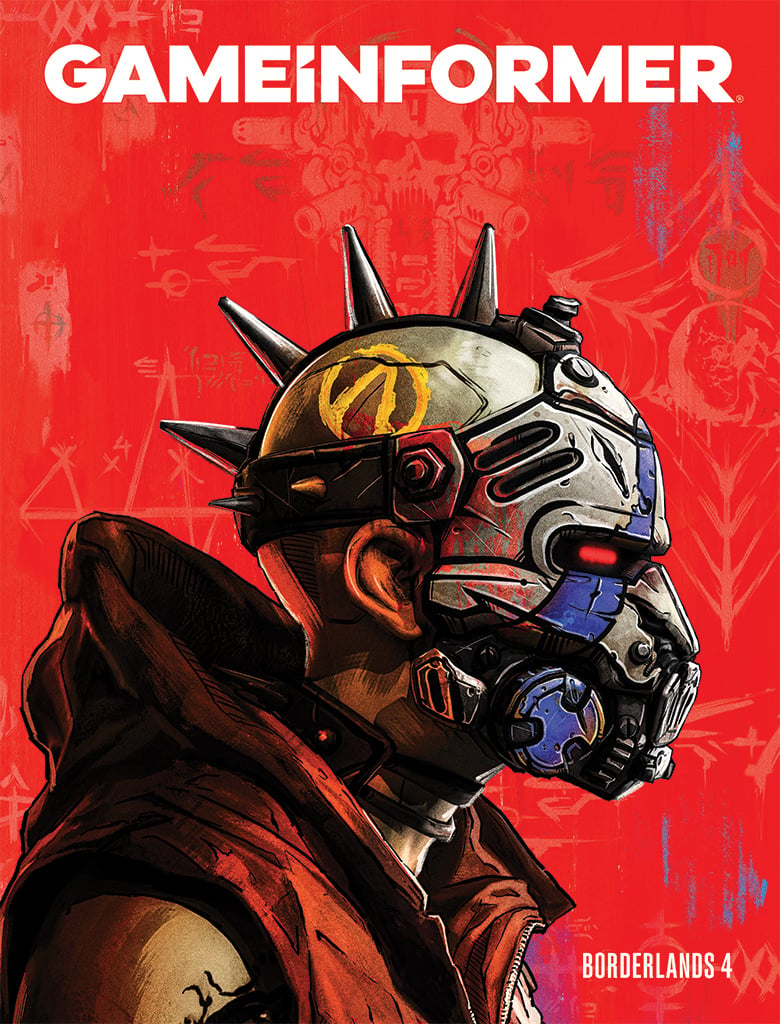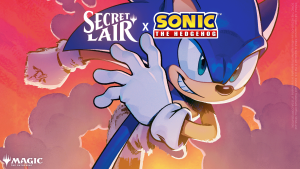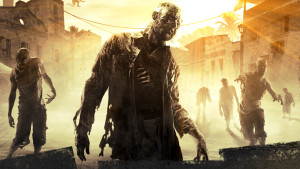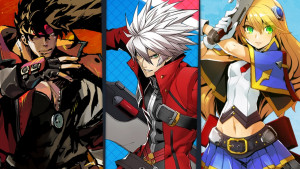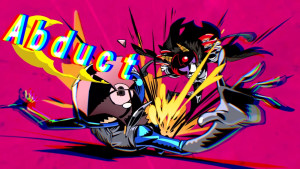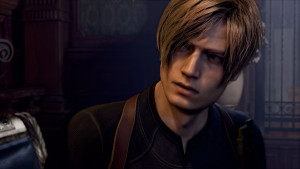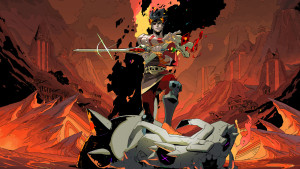Last chance to get your Borderlands 4 issue when ordered by July 1st. Subscribe Now!
Review: Middle-earth: Shadow of Mordor
Normal 0 false false false EN-US JA X-NONE

©Warner Bros.
Middle-earth: Shadow of Mordor
Time Investment: 20+ Hours
Verdict: Borrow
I had a lot of fun playing Shadow of Mordor. My problem was that for every fun challenge and avenged death there was a frustrating encounter with a corner or a boss encounter in the middle of a mission. It is by all accounts a well-made game, but there is enough holding it back that I could only recommend playing it if you can find it for cheap.
You play as Talion, who is looking to avenge the death of him and his family. That is possible because he is brought back to life to carry that out by Celebrimbor, the man responsible for creating the famous rings of power. He and his undead wraith powers are the game’s excuse for your extraordinary abilities and serves as justification for constantly coming back from the dead. One of the game’s selling points is in its nemesis system. It randomly generates orcs to fill out a tiered set of captains and the higher tier warchiefs. They all have their own sets of strengths and weaknesses that you’ll need to exploit to take them down. So one may be immune to ranged attacks so you can’t simply sit back and pepper him with arrows, while another may be immune to your execution style finisher attacks. They operate independently of you and you only have some outside influence on their ranks (at least early in the game). This means that if a random orc kills you then when you respawn that orc will have grown stronger and potentially been promoted from lowly foot soldier to named orc. All of the systems at play with the orcs is satisfying to see unfold and impressive the level of consideration that game has for your input.
Getting revenge on an orc that killed you is strangely rewarding considering they are completely randomized, but you grow an attachment to these names. Part of what helps propel this ahead is the fact that when they die you see a brief cutscene of them relishing in their victory. Additionally, when you encounter them as a captain they get another jab at you before you attack them that will call back to specifically how they killed you. It’s a nice touch that is effective at making these characters have some weight behind them.
That so many stories can emerge from the mechanics is important because the characters that the developers actually decided to name and write a story around are so uninteresting it’s almost insulting. There are only a handful of characters besides you and the orcs that you’ll meet throughout the game and they tend to only show up in a short series of story missions and are gone as quickly as they came. The story tries to imply that your character has meaningful connections with them, and I wish that I could have shared even a modicum of that same connection. It is extra disappointing when you consider that this is using the Lord of the Rings license. I may not be the biggest fan of Tolkien’s books, but this story seems to go out of its way to not only rewrite parts of the famously complex lore but to do nothing to add to it. It only seems like the license would make for an easy brand to put on the box and it gave the developers free reign to be as wantonly violent as they pleased. Who’s going to feel guilty killing thousands of orcs? Somehow more damning still is that even if the narrative itself were compelling, the game does such a poor job of explaining any of the events from the books that there is almost never any context for who you are talking to or why you are doing anything. Even if you’ve memorized the Silmarillion, the game takes that knowledge for granted one too many times.
Luckily, then, the game really thrives on its gameplay and its mechanics. You’ll often find yourself in situations where you need to stealth your way into an orc fortress and silently take as many guys out as you can. The game has no problem throwing dozens of enemies at you at once, so it’s easy—especially early on—to get overwhelmed if you just throw yourself into combat. It provides a nice incentive for stealth and the game is just generous enough with its stealth that you never feel totally out of control.
When you do find yourself in combat though the game functions exactly like Rocksteady’s Batman series. Now when I say exactly I don’t just mean that the enemies have a marker over their heads to indicate that you can counter them and keep a combo going—which it does—but down to specific Batman upgrades. When you get your counter to x8 you can do an instant take down which can be upgraded to only x5. They’re done by pressing two of the face buttons, just like Batman, and there are four combinations that offer different combat bonuses, just like Batman. For as much as it takes from Rocksteady whole cloth it does so really well. I don’t want to condemn the game too much for it considering how well it fits into the rest of the game that they built. It is just as satisfying here as it was there and getting a handle on it and mowing down hordes of orcs is a delight.
The game is essentially a full-scale power fantasy where they let you loose on Mordor and tell you to go wild. It truly feels like a dark and dangerous place full of evils around every corner. If it isn’t a band of orcs transporting slaves then it’s a loose caragor (large fantasy beasts) which the game gladly lets you mount. It is a violent playground (a drab and uninteresting one to look at to be sure) that works best at a full sprint. Running around and clambering up buildings is fun; it’s when you have to slow down that the game really hits a wall. It can be painfully difficult to simply navigate corners and ledges when you don’t have the space to run. There were many times playing the game that I found myself yelling at Talion for getting stuck in a doorway for 10 seconds too long. For a game so intrinsically about giving you unchecked power nothing more successfully brings you back to Earth like your wraith killing-machine being bested by a wall.
With all of my complaints about the game, it is a testament to its core strengths that I still had a good time with it. It took a couple of hours at before the game started to make sense to me, but once the clockwork pieces of the nemesis system had some time to start turning, Shadow of Mordor showed itself as something certainly more than the sum of its parts. I can’t say it’s an excellent game, but one definitely not worth missing if you’ve got the chance.
